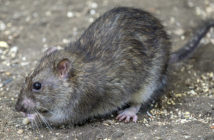Yes. Its official. The UK economy is in recession. But whats the mood in the pest control industry? Pest editor, Frances McKim, canvassed industry opinions. This is the full report of findings a shortened version appears in Pest magazine.
The economy has shrunk for the second successive quarter meaning that the UK is now technically in recession. The UK Government is now predicting that the economy will continue to decline through most of 2009 but recover in 2010.
| We have all heard about the closure of Woolworths and the job losses at companies such as Corus and JCB. But, closer to home, what of pest control? Is the UK pest control industry going to be hit as hard?
Forecasts are mixed. What is bad for one sector opens up opportunities for another. One thing is certain though – everyone is delighted they are not involved in either basic manufacturing or the sale of high-value luxury goods. Local Authorities examining all discretionary activities |
|
|
|
A survey undertaken by the Local Government Association (click here) revealed that one in seven of the 388 councils in England planed to make redundancies. 22% of councils have introduced a recruitment freeze. The position in Scotland and Wales being no better. Balancing a council’s budget is proving impossible. Council tax rises are frozen. Income is well down caused by a variety of factors, in particular the collapse of the housing market with fees from developers and planning applications virtually disappearing. Demands on certain activities have increased, for example providing essential services such as help for the homeless, debt counselling, housing advice, employment services and child protection issues following the Baby P case. All council activities are under the spotlight – especially those deemed to be discretionary as opposed to statutory. Or, more radical approaches are being considered such as outsourcing all (yes – all!) council-run services as proposed in a report approved by the cabinet at the Conservative-controlled London Borough of Barnet. On the outskirts of Nottingham, Erewash Borough Council has already taken the plunge and disbanded its council-run pest control services in April 2008 and may provide a guide as to what is to come. A glance at its website reveals a strong emphasis on encouraging residents to attempt a DIY approach, or if this fails, to consult Yellow Pages for a commercial service provider. Paul Smith in the Environmental Health Team has responsibility for pest control, or more relevantly the serving of pest enforcement notices, said: “To my surprise, so far there has been no significant increase in the number of enforcement notices, but this may well be about to change. When we require any pest control work doing we have to go out to quote from a local contractor. As far as Erewash is concerned, the increase in services, for example a charge of £750,000 for free bus passes, led to cost cutting wherever possible.” It is hard to gauge the exact number of councils contemplating giving up, but another example is Peterborough City Council. For financial and operational reasons all discretionary services have been under the microscope. In a good wasp year, the pest control team just about covers its costs, but the four-man unit is anxiously awaiting 25 February when the proposal to disband the pest control service goes before council for final ratification. If approved an outside contractor will be appointed. Commenting on these developments, Dave Oldbury, secretary of NPAP said: “The role of local authority pest control is to protect public health. In-house teams are viewed as the best option as they can be flexible in approach and extend beyond the scope of any one individual, for example with block treatments of flats. What is to happen when mosquito control is required with climate change? Councils turning their backs on pest control may solve a short-term financial problem but at the expense of longer-term, more serious consequences.” All very valid points, but are they being heard in the right places? Householders attempting DIY pest control The other factor everyone agreed on is the market in 2009 will depend very heavily on what sort of season it is – might this be the good wasp year everyone has been waiting for? Regarding insect problems, Alan Morris from Bayer Environmental Science feels that if there is an insect explosion, DIY pest controllers will admit they can’t cope and then call in the professionals. As far as rodents are concerned, Martina Flynn at Sorex suggests that following the colder winter we have had this year, more rodents are being forced indoors with the result that the public’s tolerance level of pests is likely to rise. Bruce Blything at Industrial Pesticides felt there were plenty of challenges to be faced. He identified the growing number of empty retail buildings presenting a pest control challenge. Richard Lunn from SX Environmental agreed: “Someone used to look after all those Woolworth’s stores. If the sites are empty they’ll act like rodent magnets – all those harbourages will cause numbers to increase, which in turn leads to more business.” Big is not seen as beautiful Private pest controllers generally felt that professionalism and customer care are key. “Companies who have put effort into caring for their customers will reap the rewards of loyalty. Loyalty has to be earned. If your contract is based solely on price, you really need to ask if this is the right customer for you,” declared Kris Plumley, managing partner in Alfreton-based ClearFirst Services. Personal service and attention to detail certainly seem to be significant factors in helping pest controllers survive this recession. And these are often achieved much more easily by regionally or locally-based companies. Despite only being in business for just over a year, Ricky Browning of Dorset-based Prevent Pest Control explained: “If you can offer personal service, organisations are prepared to give you a chance to prove yourself, especially if you can save them some money from what they have been paying the large national pest control organisations.” This opinion confirms a rumour within the industry that the large national companies have identified these small local companies who can offer excellent customer service as one of their prime business threats. So, to conclude, it will certainly be a challenging year ahead. But it’s not all doom and gloom – remember there are situations where legally pests must be controlled and, at the end of the day, not that many individuals are really prepared to put up with pests. If readers have a comment to make, or know of other examples of cut-backs, please contact [email protected] |
||




